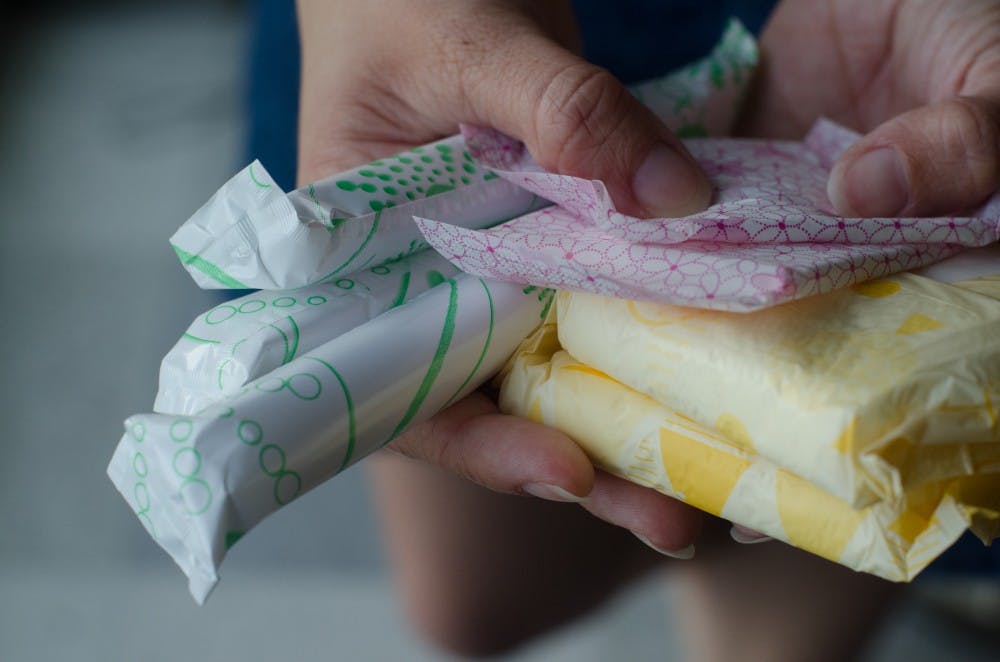
A new student club at Penn is working to provide menstrual products for homeless people in West Philadelphia.
The Penn Period Project was co-founded by College and Wharton junior Anna Schmitt and College junior Jana Krien last month.
Schmitt said she was inspired to investigate the problem of menstrual inequity in Philadelphia after 180 Degrees Consulting considered partnering with PERIOD, an organization started by a Harvard University student that provides menstrual products to homeless people across the nation.
“I was for a while upset at how expensive tampons were,” said Krien. “And then it kind of clicked that if I think they’re expensive, what about the people that can’t afford them?”
Schmitt and Krien said they think the problem is particularly acute in Philadelphia because of its large homeless population. As of 2015, there were roughly 700 homeless people in the city. In 2016, roughly 26 percent of the city's population fell below the poverty line. This was the highest figure among the top 10 most populous cities in the United States.
Schmitt stressed the dire consequences people face when they don’t have access to proper menstrual products.
“It’s definitely a public health issue, because it’s very dangerous for these women, as they often don’t have health insurance,” Schmitt said.
Krien agreed, adding that the shortage of accessible menstrual health products can affect other parts of people’s lives.
“When [people] don’t have access to menstrual products, then they can’t go to school, they can’t function properly at jobs, they feel overall embarrassed and they have physical health problems because they’re using garbage and other materials in place of menstrual products,” Krien said.
Schmitt said that this semester, the group plans to focus on data collection, where members of the club's partnership committee will reach out to pre-existing charitable organizations to see how the Period Project can increase accessibility of menstrual products for members of the West Philadelphia community.
She added that some homeless shelters and food drives distribute hygiene packets, but these do not typically include menstrual products. The group plans on finding a way to include menstrual products in those packets.
Schmitt added the focus of the club currently is about “finding [programs] that already exist and supplementing them.”
Krien said the club is also hoping to partner with student groups at Penn, sororities and other sponsors with similar interests.
Vice President for Development at the Brennan Center for Justice Jennifer Weiss-Wolf, who is publishing a book called "Periods Gone Public," said the problem of menstrual inequity has been the target of legislative policies nationwide, especially since 2015.
While her work focuses on legislative reform, she said she is also supportive of grassroots and local efforts like collection and donation drives.
“[Grassroots movements] proliferated in exciting ways over the past couple years since this issue has garnered so much public attention and been the subject of headlines," she said.
Weiss-Wolf also added that despite the current political climate, which she describes as “defensive” for women’s rights and social justice, the issue of menstrual equity still has bipartisan support on a legislative level.
To students who want to help this issue, Weiss-Wolf recommended getting involved in campus activism to ensure readily accessible menstrual products. She also said that students can sign petitions and get in touch with legislators to “make the case for menstrual access and tax-exempt menstrual products.”
The Daily Pennsylvanian is an independent, student-run newspaper. Please consider making a donation to support the coverage that shapes the University. Your generosity ensures a future of strong journalism at Penn.
Donate




